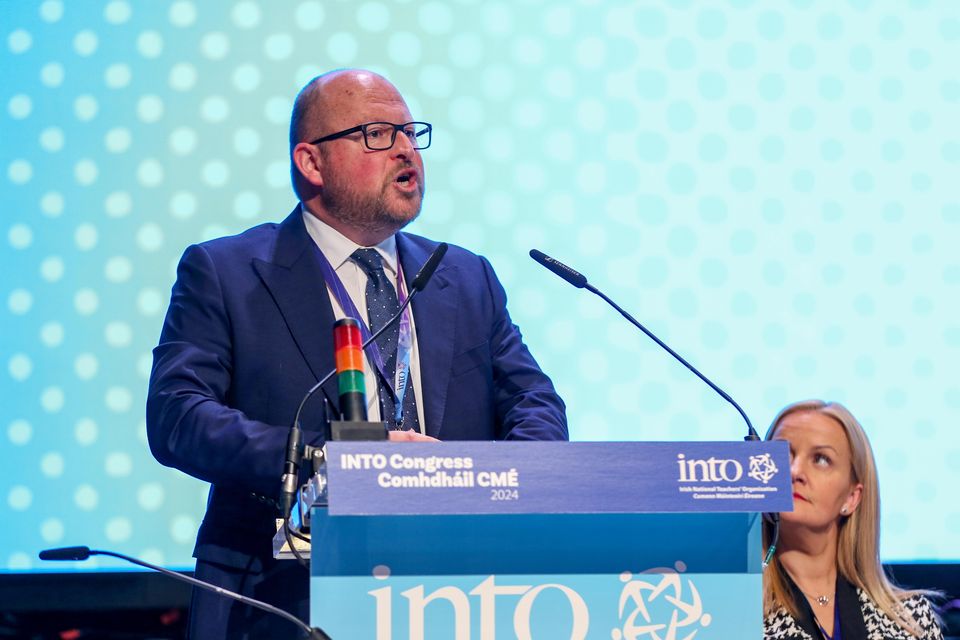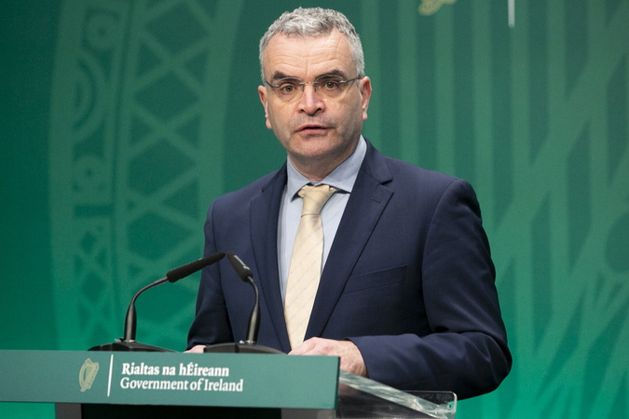About 750,000 workers are set to be signed up to the My Future Fund auto-enrolment pension from early January. It has been described as the biggest shake-up in the pensions landscape in the history of the State.
It has emerged, however, that some companies are trying to avoid having their staff signed up to My Future Fund because they do not want to handle the administrative burden and cost involved. These companies are attempting to undermine the scheme by forcing their staff to join an inferior in-house pension scheme.
These in-house schemes involve “token” contributions being made by the employer. Unions say this is leaving staff short-changed.
Contributions as low as 1pc from the employer, with nothing being contributed by the employee, are a feature of these in-house schemes, according to a letter from Department of Social Protection secretary general John McKeon to Irish Congress of Trade Unions (Ictu) general secretary Owen Reidy.
Social Protection Minister Dara Calleary told the Irish Independent he was now rushing to sign a statutory instrument to force companies to make a minimum employer contribution to any occupational pension to stop companies trying to get around contributing to My Future Fund on behalf of employees.

Owen Reidy, general secretary of the Irish Congress of Trade Unions. Photo: Lorcan Doherty
The much-delayed My Future Fund scheme comes into effect from the start of January. People who do not have a company or private pension, earn more than €20,000 a year and are aged between 23 and 60 will be automatically enrolled in the new system.
The employer will initially contribute 1.5pc of the staff member’s salary, with the same percentage being contributed by the staff member and the Government topping this up with a 0.5pc contribution.
The contributions levels will gradually climb until, after 10 years, the employer and employee contribution both hit 6pc.
Mr Calleary said some employers were telling staff the law now dictates that they have to join a pension scheme, but he said the only scheme employees without a pension will legally have to join is My Future Fund.
He said his department was getting reports from whistleblowers and payroll providers, and on its helplines, of some companies forcing staff to join a pension with just token contributions being made by the firm.
There is a need to set out minimum standards on employer contributions into existing occupational pension schemes
Mr Calleary said workers being offered entry to a questionable pension scheme should compare what is being offered to them with what is available under My Future Fund.
Mr McKeon said in his letter to Mr Reidy that some companies were compelling staff to join in-house pension schemes ahead of the roll-out of My Future Fund.
“We also understand that payments into these pension schemes consist solely of an employer contribution of about 1pc of salary,” he wrote.
Such a low contribution is less than a third of the combined initial contributions payable by the employer and employee under My Future Fund, Mr McKeon said.
Mr Reidy welcomed moves to bring in regulations to protect the integrity of the new auto-enrolment pension scheme. He said there was a need to set out minimum standards on employer contributions into existing occupational pension schemes.

Some in-house pension schemes may be less favourable than My Future Fund. Photo: Getty
This was important “to ensure employees exempt from auto-enrolment are not being short-changed”, he said.
“New regulations will mean a token employer pension contribution will no longer satisfy the requirements of the act, cutting off this avenue for those employers looking to violate the spirit of the law,” he added.
Mr Reidy said workers coming under pressure from their employer to waive their right to a pension, or sign up for one that is less favourable than My Future Fund, should contact their trade union for advice.
Mr Calleary said that a person earning €25,000 a year who is enrolled in My Future Fund will initially contribute €375 a year into it, with their employer required to match this.
Over a year, the two contributors and the government contribution will amount to €875.
The lack of tax cuts in the budget could make it challenging for those expected to contribute 1.5pc of salary from January
When this person reaches the age of 66, there will be a fund of €196,000, excluding any investment gains.
This will be in addition to the state pension, which is currently €15,044 a year, but is due to go up by €10 a week from January.
Mr Calleary stressed that the PRSI pension would remain the bedrock of the system, but said the lack of tax cuts in the budget could indeed make it challenging for some of those who will be expected to contribute 1.5pc of salary from January.
Employer bodies Ibec, Isme and the Small Firms Association were contacted for comment, but had not replied by the time of going to press.

